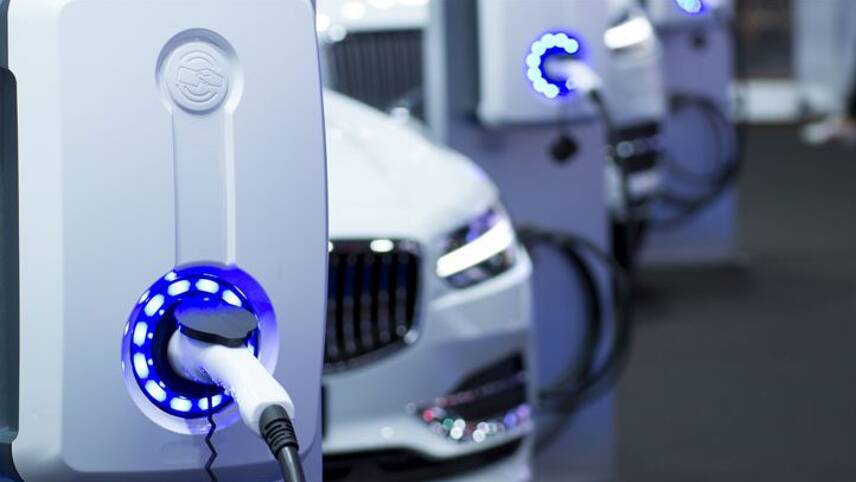Register for free and continue reading
Join our growing army of changemakers and get unlimited access to our premium content

New Automotive notes that Tesla currently tops the list for most EVs registered year-on-year
Research published this week from New AutoMotive found that while EV car sales have risen healthily year-on-year, UK manufacturers look set to fall short of requirements set to be introduced by the Government as part of the Zero Emissions Vehicle (ZEV) mandate.
The research found that EV car sales rose 40% year-on-year in June, due to competitive leasing deals. However, electric van sales fell by 11%.
New Automotive expects the dip to be temporary, claiming that market sales for vans should grow steadily as a result of the planned ZEV mandate.
This piece of legislation will set minimum requirements for the proportion of a carmaker’s sales that must be electric. Percentage requirements increase over time, to 100% in 2030 – the UK’s end date for the sale of new petrol and diesel cars and vans.
However, New Automotive is warning that car manufacturers that are eligible under the ZEV mandates are risking about £660m in buy-out revenues due to not meeting regulatory requirements.
At present, the Government is proposing a 22% ZEV mandate for carmakers for 2024. Firms producing more than 22% of their vehicles to zero-emission standards will receive credits which they can sell to competitors who fail to meet the minimum requirement.
Based on current rates, New Automotive claims that 32 car manufacturers would collectively be 44,000 credits short of meeting these aims if the ZEV had been in force over the last 12 months. This totals £660m in borrowing costs in order to meet the regulation.
New Automotive’s chief executive Ben Nelmes said: “Electric cars are so popular that manufacturers cannot produce enough of them to meet demand. Consumers tell us they love the running cost savings, the smoother drive and guilt-free motoring. The challenge facing the UK remains how to give consumers what they want: more electric cars.
“Ministers’ plans for a California-style Zero Emissions Vehicle mandate are essential to boosting the supply of electric cars as well as boosting charge point installations – but they must come into force in January 2024 so consumers can benefit.”
Manufacturers missing out
Zero Emission Vehicle mandates have been recommended by a wide range of green groups for several years. Additionally, during the DfT’s first consultation on such mandates last year, several large automakers voiced support.
The Energy and Climate Intelligence Unit (ECIU) recently warned that the vast majority of cars manufactured in the UK are exported – around 80%. Most of these vehicles go to one of three markets – the EU, China and the US.
It estimates that, in 2030, the UK could export cars worth £10.9bn less to the EU than it did last year. It also stands to miss out on £1.45bn of exports to China and more than £900m of exports to the US. In total, a decline in car export revenue of up to 59% is on the cards. This is because those markets are all ramping up domestic EV production.
New Automotive notes that Tesla currently tops the list for most EVs registered year-on-year, accounting for 17% of the market. MG ranked second, followed by Volkswagen in third.


Electricity generation is in private hands, and not even British for a large part.
Do the EV promoters collaborate with generators to ensure that enough green power is available for recharge points???
The growth in generation needed to replace fossil fuel in transport is unimaginably huge; but who looks!?
Building nuclear, almost all others in the UK are fossil fuel, is high in capital costs, but lasts longer.
And then there the batteries, rare metals, are they dutifully recycled????
Ah me! It is not simple.